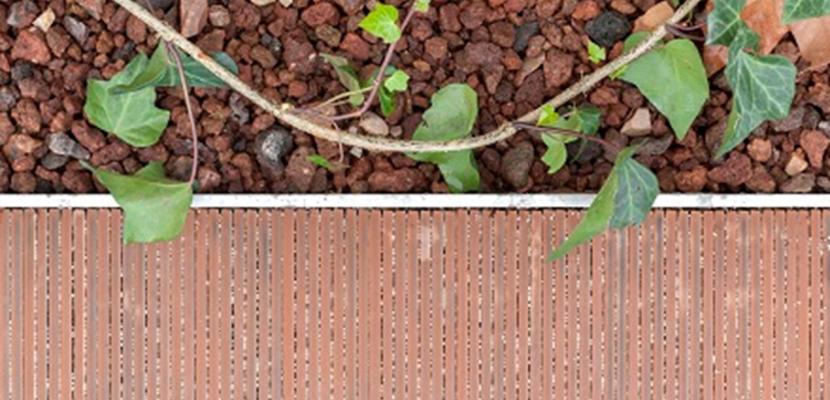Image

Ceramic Sustainable Urban Drainage System (CERSUDS)
Published on 11 June 2021

Spain
Comunitat Valenciana
This is the good practice's implementation level. It can be national, regional or local.
About this good practice
The growing of the cities implies a huge use of materials as the same time as we increase the amount of sealed urban surfaces. By using CERSUDS, we minimize the impact of urban growing promoting sustainable urban drainage systems, improving the capacity of climate adaptation, and giving a use to ceramic tiles with non-commercial or low commercial value as a permeable covering.
This practice is based on the reuse of ceramic tiles of low commercial value from manufacturers’ stock. The system envisages cutting the ceramic tiles into strips of specific width, which will then be bundled into permeable ceramic units. The development of these units provides speed and simplicity in flooring installation.
This pavement has been used in the renovation of a street
moving from the former situation, consisting of a sealed surface with collection of urban run-off by means of traditional sewer systems connected to a rainwater collector, to a new solution with this permeable pavement, as part of the SuDS system, placed on site to facilitate percolation, reduce runoff and improve water quality. Modular storage cells had been located along the bicycle lane, including additional storage to allow reusing water for irrigation of gardening areas. The system acts as a collector reducing the contribution of runoff water to the traditional sewer network.
The main stakeholders and beneficiaries of the practice have been urban designers, Policy makers (Valencia Regional Government, Benicassim Munic
This practice is based on the reuse of ceramic tiles of low commercial value from manufacturers’ stock. The system envisages cutting the ceramic tiles into strips of specific width, which will then be bundled into permeable ceramic units. The development of these units provides speed and simplicity in flooring installation.
This pavement has been used in the renovation of a street
moving from the former situation, consisting of a sealed surface with collection of urban run-off by means of traditional sewer systems connected to a rainwater collector, to a new solution with this permeable pavement, as part of the SuDS system, placed on site to facilitate percolation, reduce runoff and improve water quality. Modular storage cells had been located along the bicycle lane, including additional storage to allow reusing water for irrigation of gardening areas. The system acts as a collector reducing the contribution of runoff water to the traditional sewer network.
The main stakeholders and beneficiaries of the practice have been urban designers, Policy makers (Valencia Regional Government, Benicassim Munic
Resources needed
The cost of this experimental demonstrator (3,000 m2), including the manufacture of the ceramic pavement in a traditional way, the project and the construction management, the costs of personnel dedicated to the management and the urbanization works, has amounted to 757.105€
Evidence of success
IF design Award 2021
Construmat 2019 BB Prize for Innovation in product and material
First Prize of the “SOM CERÀMICA” 2018
Honorable Mention in the framework of the Innovation Awards organised by the Tektónika Fair in Lisbon
It reduces from 18 to 25% the CO2 eq emissions compared to other permeable coverings
Will also be installed in:
Plaça Anselm Clavé, Sabadell,Spain
Lugo + Biodinámico, Lugo, Spain
H2020 project Grow Green,Valencia,Spain
Plaza de España, Canet lo Roig, Castellón, Sp
Construmat 2019 BB Prize for Innovation in product and material
First Prize of the “SOM CERÀMICA” 2018
Honorable Mention in the framework of the Innovation Awards organised by the Tektónika Fair in Lisbon
It reduces from 18 to 25% the CO2 eq emissions compared to other permeable coverings
Will also be installed in:
Plaça Anselm Clavé, Sabadell,Spain
Lugo + Biodinámico, Lugo, Spain
H2020 project Grow Green,Valencia,Spain
Plaza de España, Canet lo Roig, Castellón, Sp
Potential for learning or transfer
This product contributes to reduce excess stock in the ceramic sector which is about 7,33 million m² in Spain, 4,72 in Italy and 0,24 in Portugal.
The installation in the demonstration of about 2000m2 of permeable ceramic pavement, has allowed to reduce 12 tons of CO2 emissions, compared to the installation of other permeable pavements.
During its first year of operation, the LIFE CERSUDS system has a permeability capacity of between 8,000 and 10,000 liters of water / m2 per hour.
As for the replication of the system in other locations, there is a collaboration with the LIFE Lugo+Biodynamic project for the inclusion of the system in the project demonstrator. The project for the remodeling of the surroundings of Anselm Clavé Square in Sabadell (Barcelona) is also being drafted.
The H2020 GrowGreen project, which is being developed in Valencia city, has also shown interest in incorporating the pavement in some of its interventions.
The installation in the demonstration of about 2000m2 of permeable ceramic pavement, has allowed to reduce 12 tons of CO2 emissions, compared to the installation of other permeable pavements.
During its first year of operation, the LIFE CERSUDS system has a permeability capacity of between 8,000 and 10,000 liters of water / m2 per hour.
As for the replication of the system in other locations, there is a collaboration with the LIFE Lugo+Biodynamic project for the inclusion of the system in the project demonstrator. The project for the remodeling of the surroundings of Anselm Clavé Square in Sabadell (Barcelona) is also being drafted.
The H2020 GrowGreen project, which is being developed in Valencia city, has also shown interest in incorporating the pavement in some of its interventions.
Further information
Website
Good practice owner
You can contact the good practice owner below for more detailed information.
Organisation
ITC-AICE

Spain
Comunitat Valenciana
Contact
Professor
